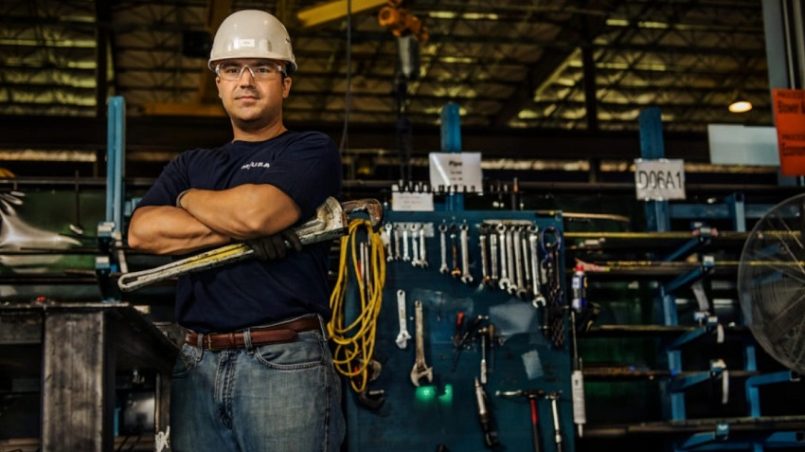Steam boilers are essential for many industries, providing a reliable and efficient source of heat or power. To ensure their optimal performance and longevity, regular maintenance is crucial. In this article, we will explore the importance of steam boiler maintenance, the signs of potential problems and provide a comprehensive maintenance checklist. Whether you are a facility manager or a homeowner, this guide will help you keep your steam boiler in top shape, minimizing downtime and maximizing efficiency.
Understanding Steam Boilers
Before delving into maintenance, let’s briefly understand how steam boilers work. Steam boilers are vessels that generate and distribute steam for heating, power, or other industrial processes. They consist of a combustion chamber, where fuel is burned, and a heat exchanger that transfers the heat from the combustion process to the water, producing steam. The steam is then distributed through pipes to various points of use.
Importance of Regular Maintenance
Regular maintenance is essential for steam boilers due to several reasons. Firstly, it ensures safety by identifying potential issues that could lead to accidents, such as leaks or faulty safety devices. Secondly, it improves efficiency by keeping the boiler clean and preventing scale buildup and deposits hindering heat transfer. Lastly, regular maintenance prolongs the boiler’s lifespan, saving you money on repairs or replacements.
Signs of Boiler Problems
It is crucial to recognize the warning signs to address boiler issues promptly. Some common signs of boiler problems include:
- Unusual Noises: If you hear banging, clanking, or hissing sounds, it could indicate issues with the boiler’s internal components or water circulation.
- Increased Energy Consumption: If your boiler suddenly becomes less efficient and your energy bills spike, underlying problems may be affecting its performance.
- Uneven Heating: If certain areas in your building are colder than others, it could be a sign of circulation or pressure problems within the boiler.
- Frequent Shutdowns or Failures: If your boiler frequently shuts down or fails to start, it requires immediate attention to prevent further damage.
Identifying these signs early on can help you avoid more significant issues down the line.
Maintenance Checklist
To keep your steam boiler operating at its best, follow this maintenance checklist:
Routine Inspections
Regular inspections are vital to catch potential problems early. Hire a professional technician to perform thorough inspections at least once a year. They will check the boiler’s components, safety devices, electrical connections, and controls. Any issues or wear and tear can be addressed promptly.
Water Treatment
Water quality is crucial for preventing scale and corrosion inside the boiler. Ensure proper water treatment, which may involve chemical additives or water-softening techniques, depending on your water source. Test the water regularly to maintain appropriate pH levels and minimize mineral deposits.
Combustion System Maintenance
The combustion system needs regular attention to ensure efficient fuel combustion. Clean the burner and inspect the flame pattern regularly. Adjust the combustion settings, if necessary, to optimize fuel efficiency. Replace any worn-out parts and ensure proper air and fuel flow.
Safety Device Testing
Safety devices, such as pressure relief valves and low-water cutoffs, are critical for safe boiler operation. Test these devices regularly to ensure they function correctly. Check for leaks, proper pressure relief, and ensure the cutoff switches operate as intended.
Cleaning and Lubrication
Regular cleaning and lubrication keep the boiler operating smoothly. Clean the heat exchanger, removing any scale or deposits. Inspect and clean flue passages, ensuring proper venting. Lubricate motors, pumps, and other moving parts according to the manufacturer’s guidelines.
Common Boiler Maintenance Issues
While regular maintenance helps prevent many problems, some issues may still arise. Here are a few common boiler maintenance issues and their solutions:
Scaling and Deposits
Scale and deposits reduce heat transfer efficiency and can lead to boiler overheating or failure. Regular descaling and chemical cleaning help remove deposits. Water treatment and filtration systems can also minimize scaling.
Corrosion
Corrosion can weaken the boiler’s structural integrity and reduce efficiency. Adequate water treatment, routine inspections, and corrosion inhibitors can help prevent corrosion. Replace corroded parts promptly.
Pressure Problems
Low or high pressure can affect boiler performance and safety. Regularly monitor and adjust the pressure to maintain the optimal range. Consult the manufacturer’s instructions for guidance.
Leaks and Drips
Leaks and drips can waste water, compromise system efficiency, and cause damage. Inspect the boiler and its connections for leaks regularly. Replace faulty valves, seals, or gaskets to prevent further leakage.
DIY vs. Professional Maintenance
While some basic maintenance tasks can be performed by individuals with sufficient knowledge, hiring a professional for comprehensive boiler maintenance is generally advisable. Professionals have the expertise to identify and address potential issues that may go unnoticed. They can also conduct specialized tests and ensure compliance with safety regulations.
Boiler Maintenance Schedule
Maintaining a regular maintenance schedule is crucial for your steam boiler’s optimal performance and longevity. Consult the manufacturer’s guidelines and your maintenance technician to establish a suitable schedule based on your boiler type and usage.
Benefits of Regular Maintenance
Regular maintenance offers several benefits:
- Enhanced safety by identifying and addressing potential hazards
- Improved energy efficiency, leading to cost savings
- Extended boiler lifespan, minimizing the need for replacements
- Reduced downtime and improved reliability
- Compliance with regulatory requirements
By investing in regular maintenance, you can maximize the benefits of your steam boiler system.
Extending Boiler Lifespan
Proper maintenance plays a significant role in extending the lifespan of your steam boiler. Besides regular inspections and cleaning, ensure proper operation, monitor water quality, and address any issues promptly. Additionally, following the manufacturer’s recommendations for maintenance and usage will help maximize the boiler’s lifespan.
Conclusion
Regular maintenance is crucial for steam boilers’ optimal performance, efficiency, and safety. By following a comprehensive maintenance checklist and addressing potential issues promptly, you can ensure the longevity of your boiler and minimize operational disruptions. Professional assistance and regular inspections are key to maintaining a healthy and efficient boiler system.




